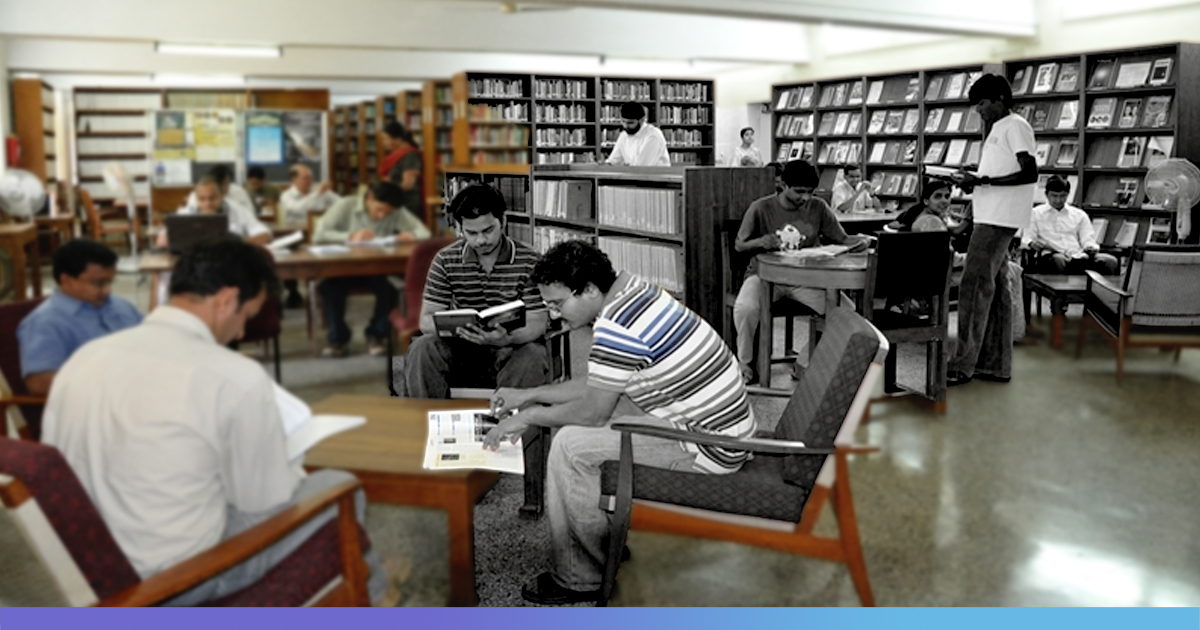When was the last time you went to a library?
For a moment, let us stop and imagine our great-grandfather visiting his favourite public library. The then young man walks into this enormous room and as he looks around, all he sees is piles and piles of old books, stacked together – some of them very dusty. As he pulls out a several-year-old copy of ‘David Copperfield’ from the stack, there is a rain of dust around him.
Beside him lies a wooden chair – not at all fancy. One of those chairs that is perhaps as old as the library. He sits down and turns the pages of the book. They have become yellow with age. He smiles at the rustling sound of the almost brittle pages.
He reads a couple of pages and looks up to glance around the quiet library. The library is buzzing with people, young and old, and yet, it is silent – back in those days, these quiet gatherings were what people looked forward to in the evenings.
The library culture is dying a slow death. Pretty little cafes decorated with starry lights, frilly curtains, and a couple of Chetan Bhagat novels stacked up on the pink walls, are taking over.
Comfortable sofas are taking over the half-broken wooden chairs.
On the lap, MacBooks are replacing worn-out Leo Tolstoy books.
An invaluable part of human history, libraries have been propagating our culture and knowledge over the centuries. There is no dearth of bookstores today – every corner of the street has a Starmark or a Crosswords. But with books in one corner and DVDs and board games in the others, these stores do not possess half the charm of those non-air-conditioned libraries.
These libraries, which once saw scores of people huddled inside every evening, lie empty today. Most of us would find it hard to believe that our earlier generations spent hours in these rooms, with no intention of walking into a Starbucks later to grab a coffee. This was their life. Libraries were their safe haven.
At most libraries today, the hand-typed card catalogues that were thumbed by generations of patrons have been supplanted by electronic indexes that are accessed via computers. Now that Virginia Woolf and Sylvia Plath’s short stories are just a click away on the web, digitization of print is gradually reducing libraries to musty archives.
Public libraries today have become like local railways – people do not mind having them around, and might as well be angry if they close; however, in reality, they have little to no time for using them.
Just like we are addicted to web series now, our older generations were library addicts. Loitering along the shelves of their local libraries, they fed on fiction and fantasies, self-help and travel.
Digitization is changing everything. Libraries are becoming victims of a massive digital wipe-out. They are no longer an abode sacred to knowledge. Their uniqueness is gone, their charm is on the run, their walls have been blasted open.
Readers still exist, and so do book lovers, but the library culture does not.
Today we have buyers, but not many borrowers. There is a lack of desire in book lovers to congregate, share stories with each other, gather together to hear and talk about writers, and experience books and literature in the context of their community.
Indeed, the decline of libraries is similar to that of churches, many of which lie unused in villages and towns in the country and beyond. They yearn for human touch but are rejected at every step. They must turn to long-lost days and nostalgia for support.
Libraries build communities.
We need to promote a culture of learning and reading inside these unused buildings, away from the hustle-and-bustle of the busy world. Nothing can be a healthier environment than one where a host of like-minded people sit together, reading, having reasonable discussions, creating a society where reason prevails over voice, deliberations over noise, and healthy debates over arguments.
Let us hope that the coming generations do not have to learn that libraries have ceased to exist. Let us build human connections, let us look up from the screen of our cell phones and engage in random conversations with a like-minded stranger in a nearby library. Some evenings, let us leave those fancy cafes alone and pay attention to the old buildings that lie deserted day after day.
Let us meet the bespectacled librarians we have heard stories of from our elders. For once, let us become the imaginary great-grandfather who walked into his favourite public library a while ago, and enjoyed a rain of dust as he pulled out a several-year-old copy of ‘David Copperfield’ from the stack of books which lie untouched today.
Also Read: “A Writer Without Regrets”: Ruskin Bond Opens Up About The Secrets Of His Literary World












